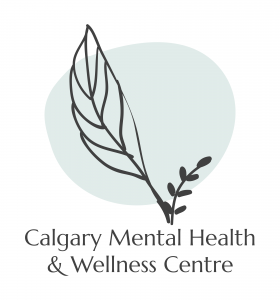For many, caffeine is a daily necessity—a morning coffee to wake up, an afternoon tea for a pick-me-up, or an energy drink to push through long hours. While caffeine can boost focus and alertness, it can also have unintended effects on anxiety and sleep.
Let’s break down the pros and cons of caffeine and how you can manage your intake for better mental health.
The Pros of Caffeine ☕
When consumed in moderation, caffeine can offer several benefits for mental function and well-being:
✅ Increased Alertness & Focus – Caffeine stimulates the central nervous system, helping you feel more awake and improving concentration.
✅ Boosted Mood – Moderate caffeine intake can increase dopamine levels, leading to a temporary mood boost.
✅ Enhanced Cognitive Function – Studies show that caffeine may improve memory and reaction time.
✅ Potential Antioxidant Benefits – Coffee and tea contain antioxidants, which may support brain health over time.
But, as with most things, too much caffeine can have negative effects—especially for those prone to anxiety or sleep issues.
The Cons of Caffeine for Anxiety & Sleep
🚨 Can Worsen Anxiety – Caffeine increases heart rate, blood pressure, and stress hormones, which can trigger or intensify anxiety symptoms. If you already struggle with anxiety, too much caffeine might make you feel restless, jittery, or on edge.
😴 Disrupts Sleep – Caffeine blocks adenosine, a brain chemical that promotes relaxation and sleep. Drinking caffeine too late in the day can lead to trouble falling or staying asleep. Even if you do sleep, it may reduce deep sleep quality, leaving you feeling tired the next day.
💔 Can Cause Dependence & Withdrawal – Regular caffeine use can lead to tolerance and dependence. If you skip your usual dose, withdrawal symptoms like headaches, irritability, and fatigue can set in.
🌡 Increases Stress Hormones – Caffeine stimulates cortisol (the stress hormone), which can keep your body in a state of heightened alertness, making it harder to relax.
How to Manage Your Caffeine Intake for Better Mental Health
If caffeine is impacting your anxiety or sleep, you don’t have to quit entirely—but small adjustments can make a big difference. Here’s how:
1. Set a Caffeine Cut-Off Time ⏳
To protect your sleep, try to avoid caffeine at least 6 hours before bedtime. For most people, this means stopping caffeine by mid-afternoon (around 2-3 PM).
2. Pay Attention to Your Body 🧘♂️
If you notice that caffeine makes you feel anxious, jittery, or restless, consider reducing your intake or switching to lower-caffeine options like green tea.
3. Gradually Reduce Intake 📉
If you want to cut back, do it slowly to avoid withdrawal symptoms. Start by reducing one cup per day or switching to half-caffeinated options.
4. Opt for Low-Caffeine or Caffeine-Free Alternatives 🍵
If you love the ritual of drinking coffee or tea, try:
Herbal teas (chamomile, peppermint)
Decaf coffee
Golden milk (turmeric latte)
Hot lemon water for a refreshing start to your day
5. Stay Hydrated 💧
Sometimes, we reach for caffeine when we’re actually just dehydrated. Drinking enough water throughout the day can naturally boost energy levels
Caffeine has both benefits and drawbacks. While it can boost focus and mood, too much can worsen anxiety and disrupt sleep. If you’re sensitive to caffeine or struggle with anxiety, finding a balance is key. Pay attention to how caffeine affects your body and consider small changes to improve your mental well-being.







